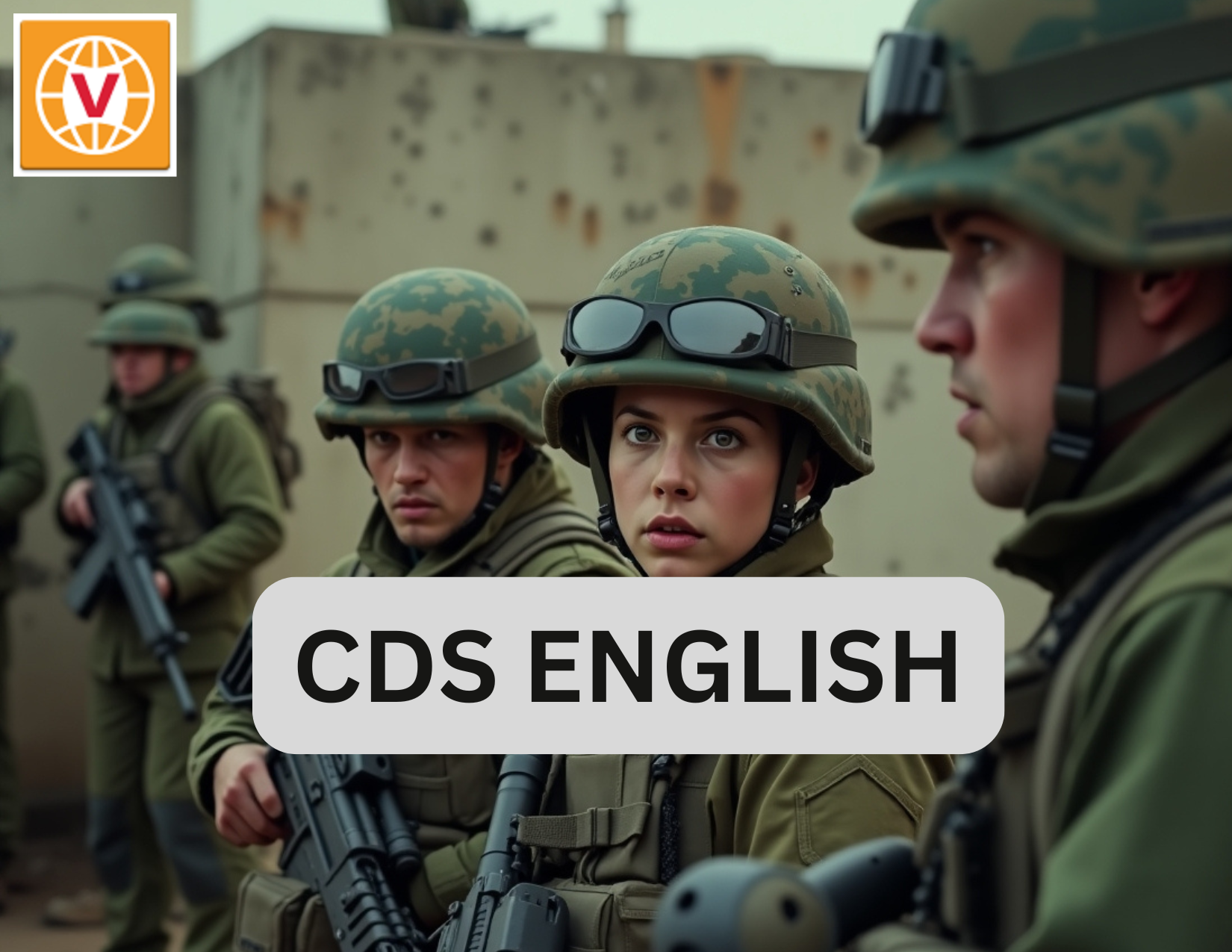CDS & NDA English: Spot the Error Questions & Answers
1. Identify the error:
(A) The teacher, along with the students, (B) were present (C) in the auditorium. (D) No error
✅ Answer: (B) were present
Explanation: The phrase “along with the students” is additional information, and the main subject “The teacher” is singular. So, the verb should be singular: “was present.”
2. Identify the error:
(A) He is suffering (B) from a fever (C) since Monday. (D) No error
✅ Answer: (A) He is suffering
Explanation: “Since Monday” suggests a continuing action, requiring the present perfect continuous tense: “He has been suffering from fever since Monday.” Also, “fever” doesn’t need an article.
3. Identify the error:
(A) Neither of the boys (B) have submitted (C) their assignments. (D) No error
✅ Answer: (B) have submitted
Explanation: “Neither” is singular, so the verb should be singular: “Neither of the boys has submitted their assignments.”
4. Identify the error:
(A) The sceneries (B) of Kashmir (C) are breathtaking. (D) No error
✅ Answer: (A) The sceneries
Explanation: “Scenery” is an uncountable noun, so it should be “The scenery of Kashmir is breathtaking.”
5. Identify the error:
(A) He enjoys to play (B) football in (C) the evening. (D) No error
✅ Answer: (A) He enjoys to play
Explanation: The verb “enjoy” is followed by a gerund (playing), not an infinitive. The correct sentence is: “He enjoys playing football in the evening.”
6. Identify the error:
(A) The police (B) is investigating (C) the case thoroughly. (D) No error
✅ Answer: (B) is investigating
Explanation: “Police” is a plural noun, so the verb should be plural: “The police are investigating.”
7. Identify the error:
(A) She prefers (B) tea than (C) coffee. (D) No error
✅ Answer: (B) tea than
Explanation: “Prefer” is always followed by “to,” not “than.” Correct sentence: “She prefers tea to coffee.”
8. Identify the error:
(A) The doctor advised him (B) to not smoke (C) for his health. (D) No error
✅ Answer: (B) to not smoke
Explanation: The correct placement of “not” is after “to.” Correct sentence: “The doctor advised him not to smoke.”
9. Identify the error:
(A) The furniture in this room (B) are very expensive (C) and well-designed. (D) No error
✅ Answer: (B) are very expensive
Explanation: “Furniture” is uncountable, so it takes a singular verb. Correct sentence: “The furniture in this room is very expensive.”
10. Identify the error:
(A) Each of the students (B) were given (C) a certificate of participation. (D) No error
✅ Answer: (B) were given
Explanation: “Each” is singular, so the verb should be singular: “Each of the students was given a certificate.”
11. Identify the error:
(A) One of my friend (B) is coming (C) to meet me today. (D) No error
✅ Answer: (A) One of my friend
Explanation: It should be “One of my friends” because “one of” is followed by a plural noun.
12. Identify the error:
(A) He is senior (B) than me (C) by two years. (D) No error
✅ Answer: (B) senior than me
Explanation: After “senior,” “junior,” “superior,” and “inferior,” we use “to” instead of “than.” Correct sentence: “He is senior to me.”
13. Identify the error:
(A) The committee members (B) has decided to (C) postpone the meeting. (D) No error
✅ Answer: (B) has decided
Explanation: “Members” is plural, so the verb should be plural: “The committee members have decided to postpone the meeting.”
14. Identify the error:
(A) She is more intelligent (B) than any girl (C) in her class. (D) No error
✅ Answer: (C) than any girl
Explanation: The sentence should be “more intelligent than any other girl” because she is comparing herself to all other girls.
15. Identify the error:
(A) I have bought (B) a few furnitures (C) for my new apartment. (D) No error
✅ Answer: (B) a few furnitures
Explanation: “Furniture” is uncountable, so we don’t use “a few.” Correct sentence: “I have bought some furniture.”
16. Identify the error:
(A) If she will work hard, (B) she will pass (C) the examination. (D) No error
✅ Answer: (A) If she will work hard
Explanation: In conditional sentences, “if” is not followed by “will.” Correct sentence: “If she works hard, she will pass.”
17. Identify the error:
(A) The company (B) laid off many employees (C) due to economical reasons. (D) No error
✅ Answer: (C) due to economical reasons
Explanation: “Economical” means “saving money.” The correct word is “economic,” meaning “related to the economy.”
18. Identify the error:
(A) He insisted (B) on me (C) going to the party. (D) No error
✅ Answer: (B) on me
Explanation: The correct phrase is “insisted on my going to the party” because after “insist on,” we use a gerund with a possessive pronoun.
19. Identify the error:
(A) Hardly he had (B) reached the station (C) when the train departed. (D) No error
✅ Answer: (A) Hardly he had
Explanation: Correct sentence: “Hardly had he reached the station when the train departed.” The auxiliary verb comes before the subject.
20. Identify the error:
(A) The number of accidents (B) have increased (C) in the past few months. (D) No error
✅ Answer: (B) have increased
Explanation: “The number of” is singular, so the correct verb is “has increased.”







